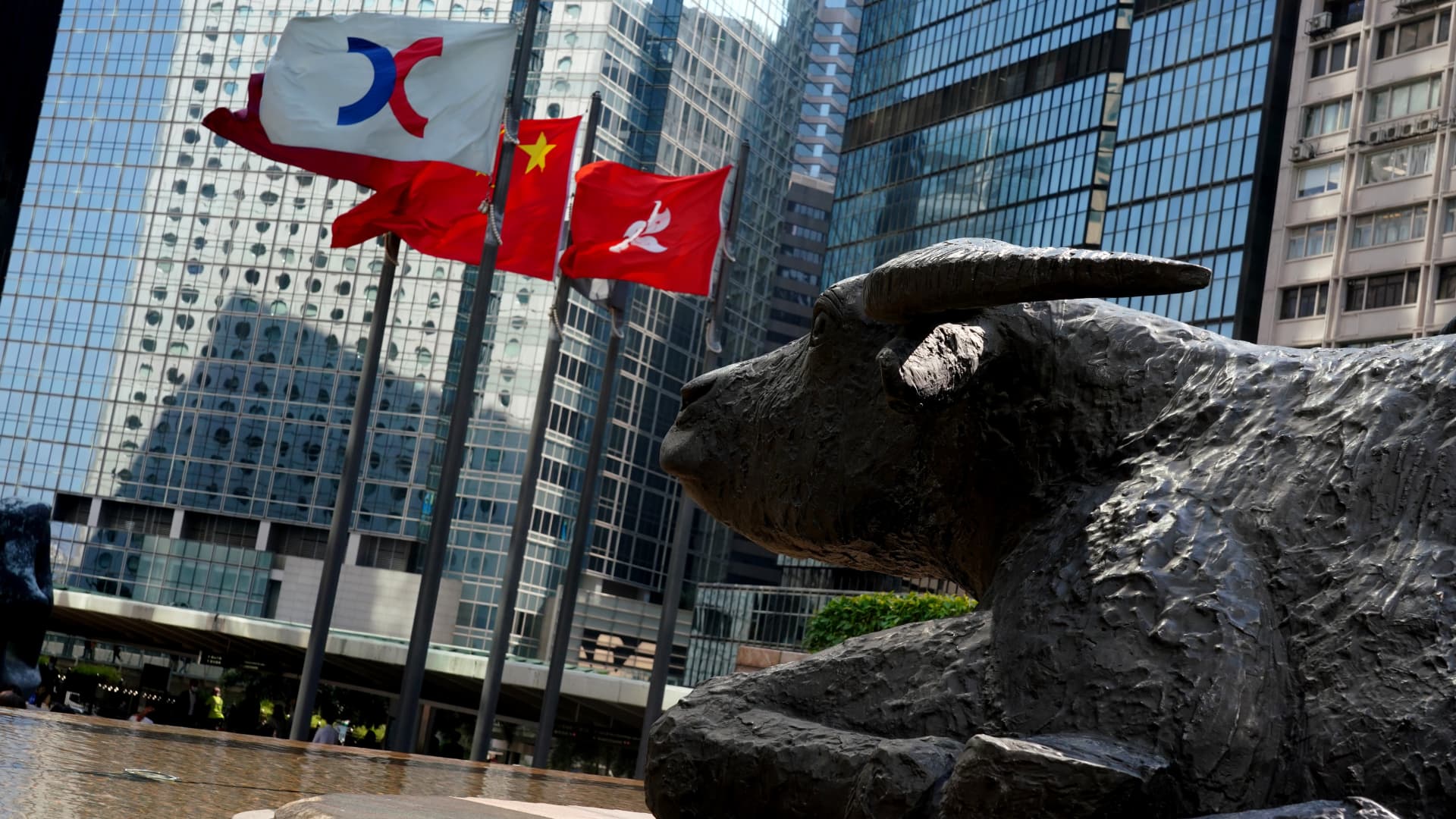
SINGAPORE — Hong Kong’s Hang Seng index led gains among the major Asia-Pacific markets on Monday as Chinese tech stocks in the city jumped.
In afternoon trade, the Hang Seng index gained 1.88% as shares of Tencent surged 2.85%. Other Chinese tech stocks also rose, with Alibaba up 3.46% while NetEase soared 6.14%.
Investor sentiment may have been buoyed by a recent signal by Chinese authorities of progress toward resolving an audit dispute that’s threatened U.S.-listed Chinese firms with delisting.
Meanwhile, the city’s chief executive Carrie Lam announced Monday she will not be pursuing a second term in office.
Markets in mainland China are closed on Monday and Tuesday this week for holidays.
The Nikkei 225 in Japan swung between positive and negative territory, last rising 0.14% as shares of conglomerate SoftBank Group gained more than 3%. The Topix index climbed 0.41%.
South Korea’s Kospi climbed 0.59%.Elsewhere in Australia, the S&P/ASX 200 rose 0.39%.
Over in Sri Lanka, trading at the Colombo Stock Exchange was paused for a second time on Monday after the S&P SL20 index dropped more than 7.5% from its last close. Trading at the exchange will be halted for the day if the benchmark index falls more than 10%.
Sri Lanka’s central bank governor announced in a Monday tweet that he had submitted his resignation to the country’s president. The country’s Youth and Sports Minister Namal Rajapaksa also announced his resignation on Twitter.
MSCI’s broadest index of Asia-Pacific shares outside Japan traded 0.97% higher.
A closely watched part of U.S. Treasury yields inverted on Friday as short-term rates jumped following the release of jobs data stateside, raising concerns over a potential recession on the horizon.
The benchmark 10-year Treasury yield last sat at 2.4153%, while the rate on the 2-year Treasury note was at 2.481%. Yields move inversely to prices, with 1 basis point equal to 0.01%.
Yield curve inversions have historically happened ahead of recessions, though many economists believe the curve needs to stay inverted for a substantial amount of time before it gives a valid signal.
“I think at this point in time we’re probably not looking at a recessionary scenario yet,” Chen Zhikai, head of Asian equities at BNP Paribas Asset Management, told CNBC’s “Street Signs Asia” on Monday.
“Everybody is looking for the next insights in terms of growth, and we got some of that last week with the employment numbers … from the U.S,” Chen said, adding that it’s “probably too early” at present for discussions on stagflation.
Those comments come as investors have been repositioning in anticipation of more aggressive tightening by the U.S. Federal Reserve as it looks to fight inflation amid worries about slowing economic growth.
Currencies and oil
The U.S. dollar index, which tracks the greenback against a basket of its peers, was at 98.561, as compared to levels below 98 seen in late March.
The Japanese yen traded at 122.65 per dollar, stronger than levels above 124 seen against the greenback last week. The Australian dollar was at $0.7509, having traded in a range between $0.747 and $0.753 for much of last week.
Oil prices were higher in the afternoon of Asia trading hours, with international benchmark Brent crude futures up 0.61% to $105.03 per barrel. U.S. crude futures climbed 0.52% to $99.79 per barrel.
— CNBC’s Patti Domm contributed to this report.
from WordPress https://ift.tt/Qm3yP2O
via IFTTT







No comments:
Post a Comment